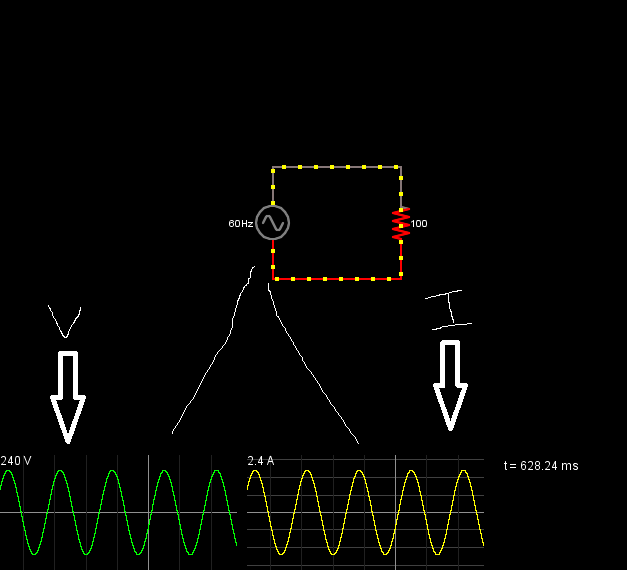\$\begingroup\$
\$\endgroup\$
2
-
1\$\begingroup\$ Pretty much as far as communicating the idea goes. Have you ever heard anyone say "AC current"? or "AC voltage"? "Alternating current current" and "alternating current voltage". I've never heard anyone say "alternating voltage" though even though it is probably more correct. \$\endgroup\$– DKNguyenCommented Mar 20, 2019 at 23:56
-
\$\begingroup\$ Isn't the english language fun? \$\endgroup\$– HearthCommented Mar 21, 2019 at 0:21
Add a comment
|
1 Answer
\$\begingroup\$
\$\endgroup\$
4
Yes, or rather, an alternating current is caused by an alternating voltage. In a purely resistive circuit, they will alternate in sync, but if capacitance or inductance are present, the current may be out of phase with the voltage.
-
\$\begingroup\$ so, ac is in phase with alternating voltage ? therefore its the same ? \$\endgroup\$– user198046Commented Mar 20, 2019 at 23:59
-
\$\begingroup\$ The voltage causes the current, which will be determined also by the resistance, according to Ohm's Law, E=IR. If someone's just saying that a certain system runs on AC, then both voltage and current are alternating, but if you're asking "Is alternating current the same as alternating voltage?" specifically, that's the same as asking "Is current the same as voltage?" in which case the answer is a very solid no. If you're asking because of a terminology question, you must keep them separate, but you basically can't have one without the other. \$\endgroup\$– K HCommented Mar 21, 2019 at 0:06
-
\$\begingroup\$ "Alternating current" is the correct standard terminology for describing a system, but "Alternating voltage" is still technically accurate based on the meaning of the two words, so it's not technically wrong, just not strictly correct, unless you were talking specifically about a voltage, and not about a system/source/load in the general sense. \$\endgroup\$– K HCommented Mar 21, 2019 at 0:09
-
\$\begingroup\$ If you meant more "Is current the same as voltage?" let me know and I will add a section explaining precisely what makes them different. \$\endgroup\$– K HCommented Mar 21, 2019 at 0:10

